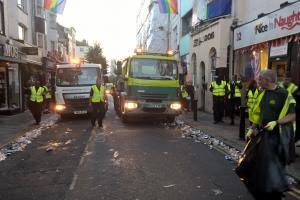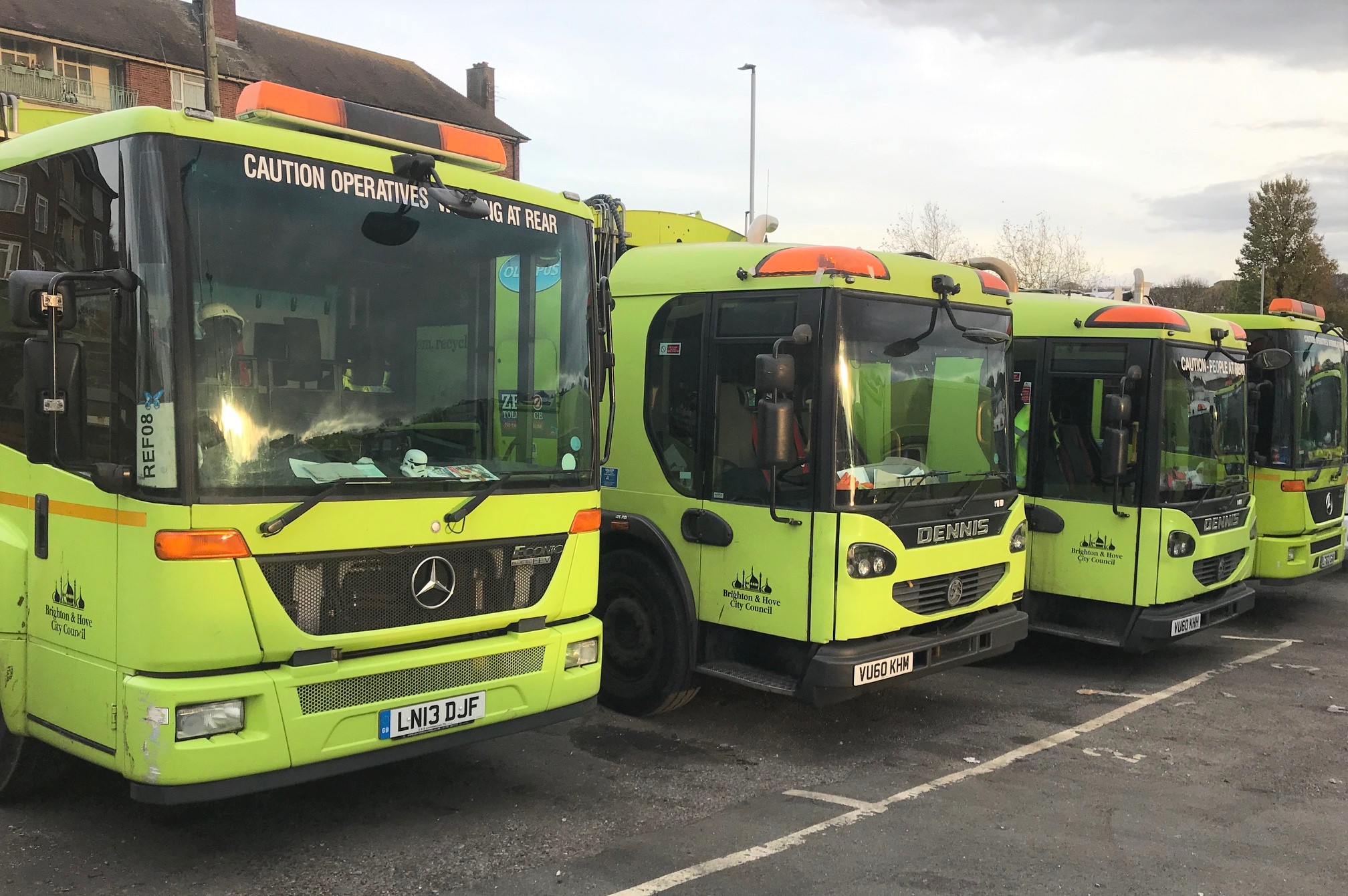The council plans to replace weekly rubbish collections with weekly food waste collections and pick up the “residual” rubbish once a fortnight.
It would also pick up glass and other recycling in separate vehicles every two weeks and continue to provide fortnightly garden waste collections for a fee.
The proposal is Brighton and Hove City Council’s “preferred option” out of five options for change that would enable the council’s rubbish and recycling service Cityclean to bring in weekly food collections.
In areas with communal bins, the frequency of collections would remain the same, with food waste containers added to the mix.
The proposed changes come as the government requires all councils to bring in weekly food waste collections by 2023.
A report to councillors said: “The introduction of food waste and the reduction of residual collection frequency, when undertaken together, can provide a balanced approach to delivering performance change and maintaining costs.”
But before any change is made, the council plans to carry out a feasibility study, draw up a business case and consult residents, staff and unions.
The plan to bring in food collections in Brighton and Hove is due to be debated by the council’s Environment, Transport and Sustainability Committee next Tuesday (22 June).
Another option would be to bring in weekly food collections and collect the rest of rubbish each week too – but council bosses expect this to cost £1 million a year more.
The council’s preferred option would be expected to cost about £30,000 a year less than the current set up.
Either way, new bin lorries would be needed – and earlier this year councillors approved a plan to spend an extra £1 million a year renewing the Cityclean fleet.
As a result, the budget went up from £1.5 million a year to £2.5 million as the council seeks alternatives to its predominantly diesel-powered current fleet.

The council would also need to spend money on providing every home with a food waste bin although officials hope to recover at least some of the cost from the government.
The report to councillors said that bringing in weekly food collections could send kerbside recycling rates could rise as much as 17 per cent.
Last September, Cityclean analysed kerbside rubbish collections and found that 37 per cent was food and drink – and more than half of that was packaged food.
The council’s Environment, Transport and Sustainability Committee is due to meet at 4pm next Tuesday (22 June). The meeting is scheduled to be webcast on the council’s website.









1.Is it really worth reducing the collections to save so little money?
2.Wouldn’t there be more rubbish and recycling to collect anyway, costing more money?
3.Wouldn’t this deter recycling?
4.Isn’t this also related to the foolish decision by Greens to end doorstep collections in many areas, thereby making it more difficult to collect food waste?
As most things can be recycled, it has always seemed to me weird that “general” waste is collected weekly but recyclables as a fortnightly afterthought. Then again, we are up against the bolshie GMB and Ecovia with its Big Burner at Newhaven (whose poisonous waste has to be buried in Cheshire).
Recyclables are generally clean and save to store.
General waste is mostly food and food preperation ‘wet’ waste and is not safe to store for weeks on end.
The issue is also capacity for collection.
At the moment all types of non commercial waste is only collected during day time hours.
This should change.
A large proportion of waste is plastic and not recyclable. Everything seems to be wrapped in it or in plastic cartons or bottles. Tetrapacks are plasticised and not recylable. It’s not possible to shop in the main supermarkets without being laden with it. This is a far greater evil that is suffocating the planet a little more each day we do nothing about it. We should collect it en masse and return it to where it was purchased until they listen and push back to the producers of it – or maybe the council could collect it and do that for us.
Tetrapaks are recyclable in Brighton. Although admittedly not easily so with few points and most full to brimming half the time.
Magpie Co-op also take Tetrapaks in their green box and opt-in paid services.
Most plastics ae in fact recyclable. The problem is that our council’s contracted ‘waste management’ company have not invested in the infrastructure to do so,hence much that could be recycled is consigned to landfill instead.
I find it ironic that at some point in the dim and distant past B&H council signed a long-term contract with this company to collect our waste and recycle that which they can; but what we have ended up with is a company paid to do the job but prepared only to recycle the material they can make a profit on. There’s a tail wagging the dog here and it should be sorted out asap.